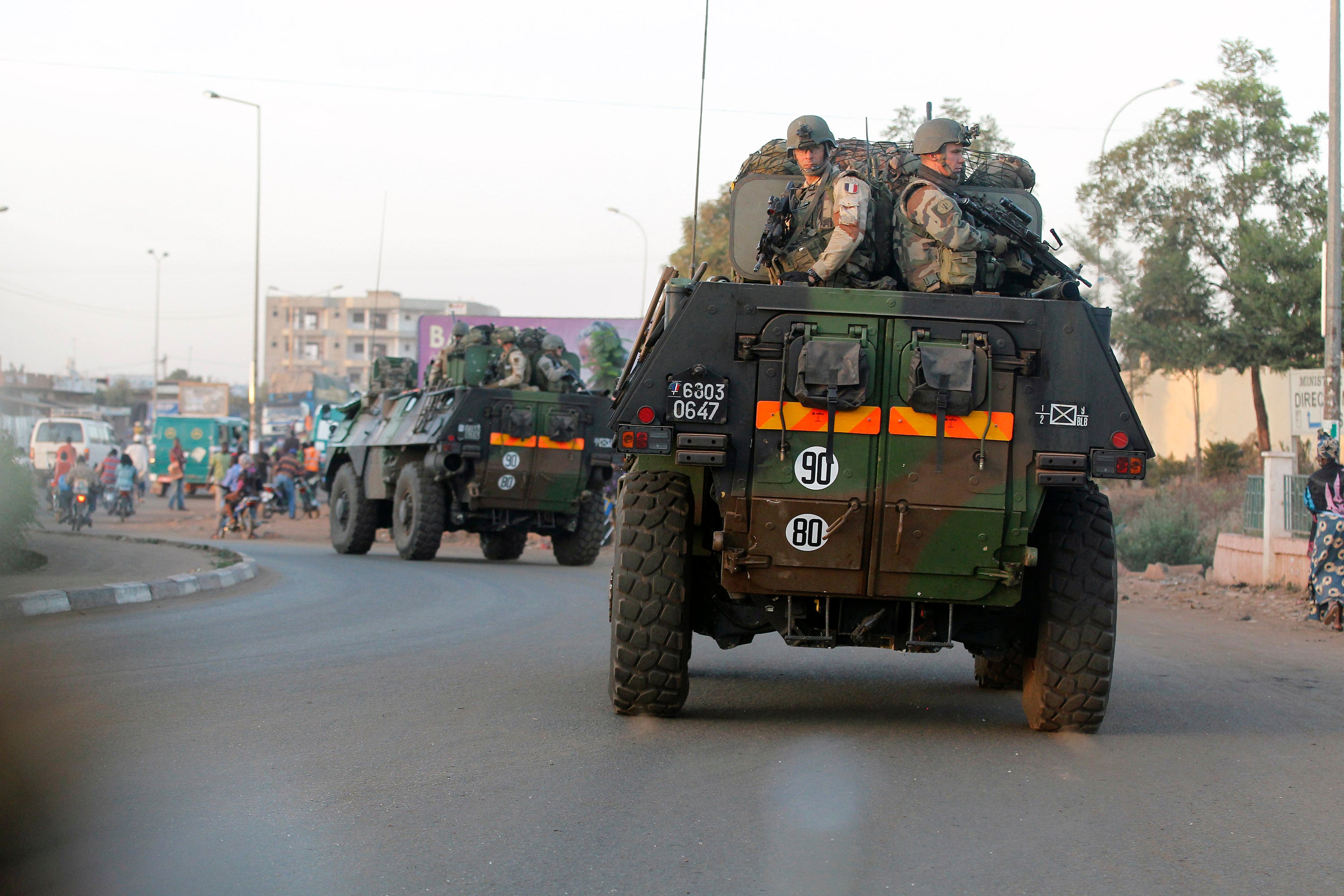Mali calls on France to withdraw soldiers "without delay"
Mali’s ruling junta is demanding the immediate departure of French and European forces, a day after France announced that it will withdraw its troops from the West African country

Your support helps us to tell the story
From reproductive rights to climate change to Big Tech, The Independent is on the ground when the story is developing. Whether it's investigating the financials of Elon Musk's pro-Trump PAC or producing our latest documentary, 'The A Word', which shines a light on the American women fighting for reproductive rights, we know how important it is to parse out the facts from the messaging.
At such a critical moment in US history, we need reporters on the ground. Your donation allows us to keep sending journalists to speak to both sides of the story.
The Independent is trusted by Americans across the entire political spectrum. And unlike many other quality news outlets, we choose not to lock Americans out of our reporting and analysis with paywalls. We believe quality journalism should be available to everyone, paid for by those who can afford it.
Your support makes all the difference.Mali’s ruling junta is demanding the immediate departure of French and European forces, a day after France announced that it will withdraw its troops from the West African country.
“The government invites the French authorities to withdraw without delay,” Malian government spokesman Col. Abdoulaye Maiga said Friday on national television.
French President Emmanuel Macron made the withdrawal announcement Thursday, saying that it would take place over a six-month period.
Speaking in a news conference in Brussels Friday, Macron said the withdrawal of French forces “will be implemented in an orderly manner” in order to ensure the security of the U.N. peacekeeping force in the country and the security of French soldiers. “I will not compromise” security, he insisted.
France has about 2,400 troops in Mali, as part of its 4,300 troops in West Africa aimed at stabilizing the Sahel region against the rising threat of Islamic extremists.
Operation Barkhane is also in Chad, Niger, Burkina Faso and Mauritania. France ultimately aims to reduce the number of its troops in the Sahel to about 2,500 or 3,000, according to the French Armed Forces.
France's deployment of troops to Mali in 2013 initially met with success, succeeding in dislodging jihadi rebels from three centers in northern Mali. But the extremists simply relocated into the vast desert areas where their attacks have increased in recent years.
Since an August 2020 coup, Mali has been led by Col. Assimi Goita. Goita carried out a second coup by dismissing the civilian leaders in Mali’s transitional government and putting himself in charge last year. Many Malians have since staged large demonstrations against the presence of troops from France, the former colonial power.
Experts and former politicians expressed worry that jihadi groups will take advantage of France’s pullout, while others noted that Mali’s security has not improved despite the presence of the French forces.
Senegal president Macky Sall, who also chairs the African Union, raised doubts about the future of the peace-keeping U.N. mission in Mali after the French troops leave.
“If there are no longer forces like Barkhane, which were there with logistical and intelligence resources, how are we ensure the continuity of the United Nations mission in Mali?” Sall asked at the end of the EU-Africa summit in Brussels on Friday. “If there is no longer any force in Mali, how can the Malian army alone ensure the defense of its territory today?”
__
AP writers Sylvie Corbet in Paris and Samuel Petrequin in Brussels contributed.